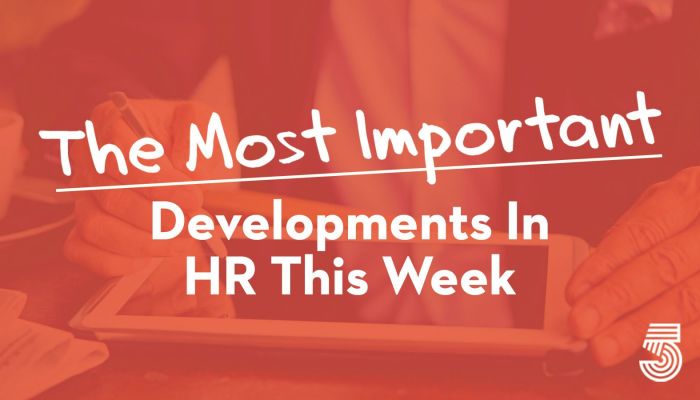The M.I.D., as we call it, is curated by our editorial team from more than 50 news sources. Like a lot of good ideas, this started as something I wanted for myself. If I can’t read everything, I at least want to stay abreast of the most important developments.
This week in HR, we learned that HR trust is not where we’d like, that religious vax exemptions are tricky, “stay interviews” might help the Great Resignation but the Great Raise surely will, and that everyone needs to stop IMing every five seconds.

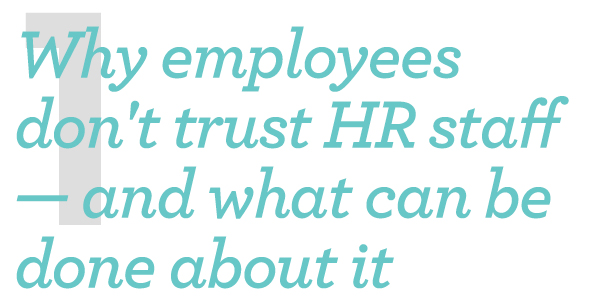
Human relations platform Cezanne HR recently surveyed over 1,000 workers at organizations with more than 250 employees in the UK. They found that almost half (47%) of employees don’t trust HR to help with conflict resolution. Forty-eight percent don’t trust HR to make them aware of internal promotion opportunities. More than two in five (45%) of respondents don’t believe HR will act impartially, while 43% believe senior staff members are favored. Last year, U.S.-based Zenefits, an HR, payroll, and benefits company, released a report called “Human Resources: Helpful or Horrible?” According to their research: 38% of employee respondents feel HR does not equally enforce company policies for all employees, with 18% of that group believing managers get special treatment. Seventy-one percent of HR employees in the survey stated that less than 30% of complaints they received in the last two years resulted in any disciplinary action. Having less than a third of cases result in disciplinary action led employees to wonder — if they bring complaints forward, will anything even result? Forbes

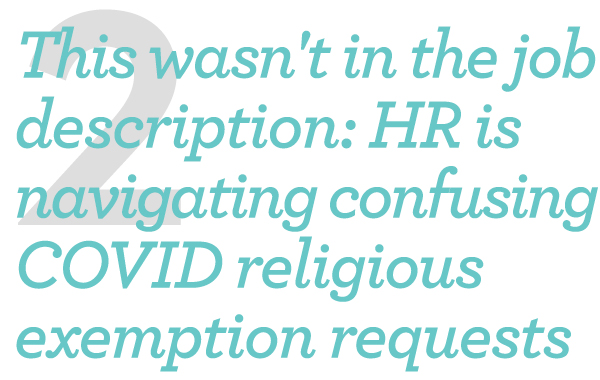
As businesses across the country start imposing strict COVID-19 vaccine and testing requirements, some employees are claiming religious exemptions to avoid getting vaccinated — putting human resources departments on the frontlines of a fraught political issue that has already proven fertile ground for lawsuits. The task before HR leaders is tricky: They have to figure out whether employees are applying for an exemption based on authentic religious beliefs or whether it’s a cover for their political views. “There are people who are going to have a sincerely held religious belief, but there’s a lot of folks out there who just object to the vaccine, and this will be their avenue to not get it,” says Ed Enoch, an attorney in Augusta, Ga., who has been fielding calls from clients at small and mid-size local businesses about everything from handling religious exemptions to vaccine mandates. Time
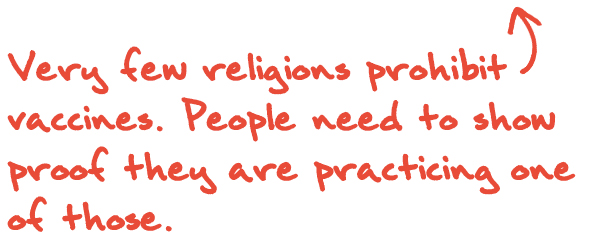
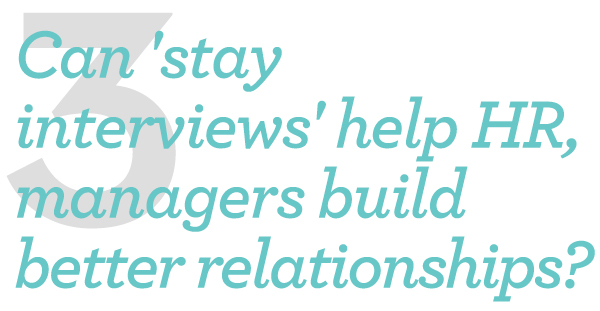
A record 4.4 million U.S. employees left their jobs in September, according to the Bureau of Labor Statistics. Not surprisingly, the industries losing the most workers have been those most impacted by the pandemic, such as retail, leisure and hospitality, and accommodations and food service. Considering that an estimated 3% of the country’s employees have quit, some HR professionals believe there may be no better time than now to conduct so-called “stay interviews.” Stay interviews help managers learn why employees stay at their job and, just as important, what would make them leave. In about a 20-minute conversation, managers can casually ask traditional, structured questions that provide insight into what employees like and dislike about their job or organization — ranging from their role and responsibilities to the organization’s people, policies, or practices. HR Executive

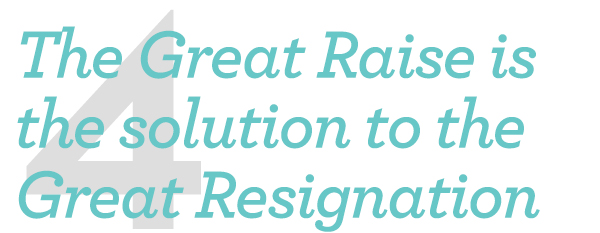
A possible sequel to the Great Resignation is already coming into view for 2022 — the Great Raise. Companies may wince at the thought, but upping workforce salaries may turn out to be not just necessary but also a smart long-term strategy, perhaps even an opportunity. Multiple macro forces have converged to create this scenario. First, and maybe most significantly, the labor market remains incredibly tight, as the pandemic-sparked trend of rethinking work shows no sign of slowing. In September, 4.4 million people quit their jobs, a record figure. A hot job market with 11.2 million vacancies is one motivation for quitters, along with burnout and retirement pushing some out of the market altogether. Second: Inflation recently hit a 31-year high, with overall prices across consumer categories 6.2% higher than last year. It’s unclear how bad this will get or how long it will last, but rising prices in sectors from gas to groceries are here, and they’re hitting many rank-and-file workers squarely in the pocketbook. Fortune

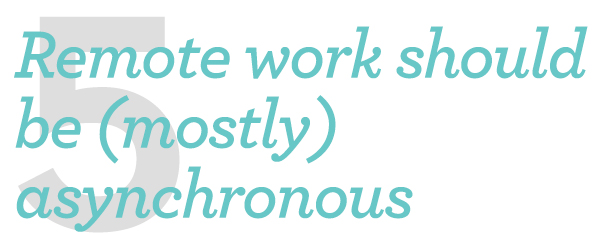
A move to a better way of working remotely is desperately needed. And it has prompted calls from a number of governments and business leaders worldwide to legislate the right to disconnect — a proposed human right with respect to disconnecting from work-related electronic communication during non-work hours, something that France introduced in 2016. But telling people to log off at 5 p.m. misses the point entirely, because it fails to address the reason for excessive workloads and rising stress — that is, how we work. Well-meaning Band-Aid solutions achieve little if the toxic norms that rob knowledge workers of autonomy and control remain in place. We can help remote workers get on top of their workloads and mitigate work-life balance conflicts by moving away from hyper-responsiveness and real-time communication towards greater asynchronous communication — the type that truly gives people the freedom to decide when and where to work. HBR







